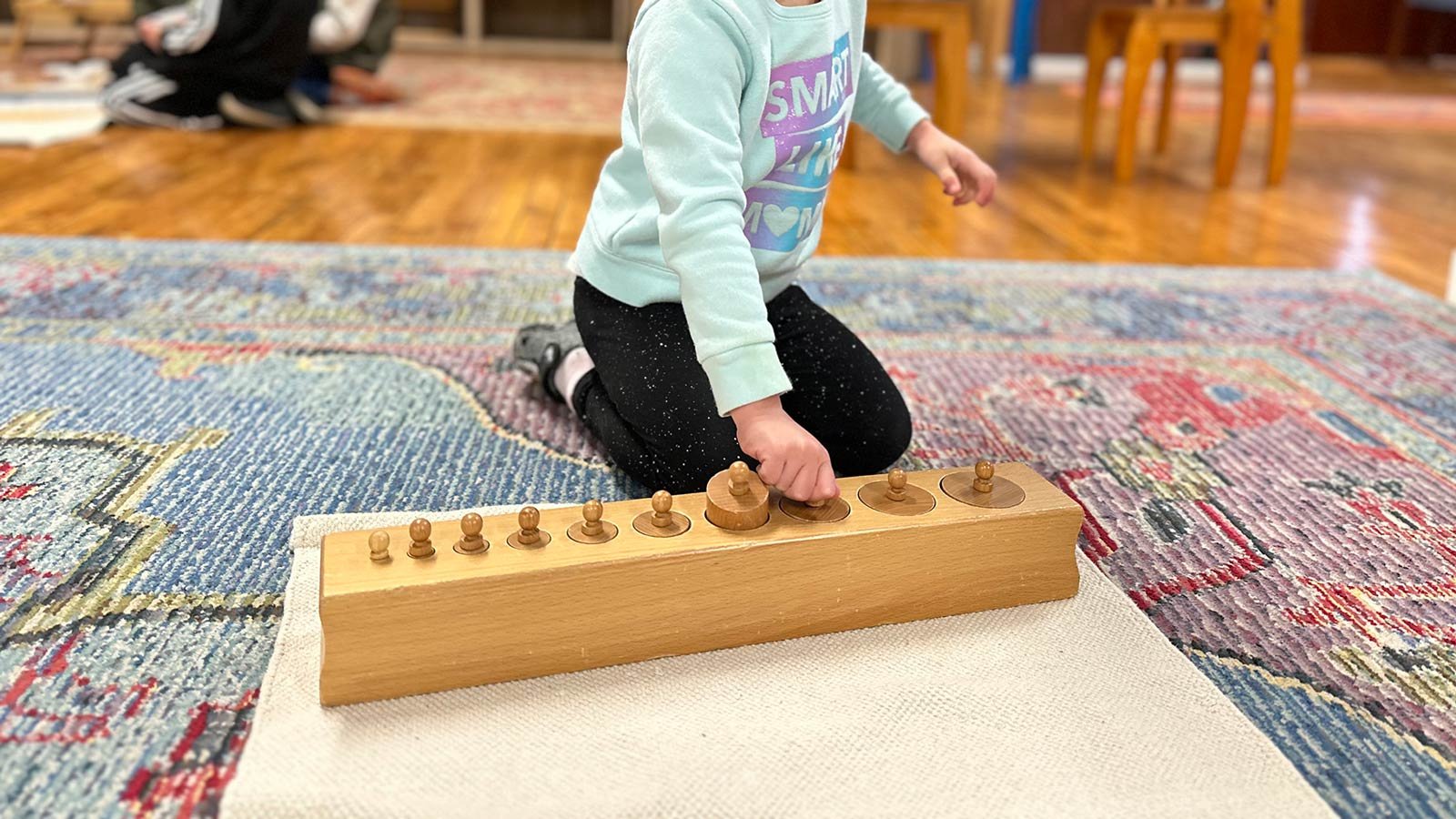
FAQs About Montessori Education
-
Montessori is a child-centered approach to education that combines both science and philosophy. It’s a powerful method that works for children of all ages and can be adapted to fit different needs, making it sustainable and easy to implement in various settings. The ultimate goal of Montessori is to help children reach their fullest potential, both intellectually and personally, and to grow into self-aware, independent, and compassionate individuals.
In Montessori, we believe that children are full of potential and naturally absorb everything in their environment. They learn and develop by interacting with the world around them. As adults, our role is to create a supportive environment that nurtures their curiosity, concentration, and independence. We provide a space where they can deeply engage in activities without interruptions, allowing them to explore, discover, and grow at their own pace. Our job is mainly to observe and guide, respecting the child’s individuality and showing them the endless possibilities within themselves.
Our goal is to help children become not just smart, but also kind, happy, and balanced. We want them to be loving, generous, peaceful, and compassionate—both with themselves and others—so they can grow into the leaders and change-makers of the future.
-
The biggest differences between Montessori and traditional education lie in how children learn and interact with the classroom. In Montessori, learning happens through all five senses—not just listening, watching, or reading. Children have the freedom to choose activities based on their interests, and they learn at their own pace. The classroom is designed to be child-led, meaning that each child selects their own work, whether it's an individual task or a group activity. Rather than sitting in a group listening to a teacher, they are actively engaged with materials that have been introduced one-on-one by their teacher, who knows exactly what each child is ready to explore next.
In Montessori, children don’t have to move on to more difficult tasks until they’ve mastered what came before. This creates a sense of accomplishment and control over their learning. It also encourages concentration, self-motivation, discipline, and a true love for learning. Because the environment is designed to foster independent exploration, there’s no sense of wasted time. Kids are naturally curious and often ask each other for help or lessons, which leads to collaborative learning instead of competition.
Montessori also includes a wide range of subjects that go beyond what's typically taught in traditional classrooms. In addition to core subjects like math and geography, Montessori students engage in practical life skills, grace and courtesy, art, music, gross motor development, and sensorial learning, giving them a well-rounded education that nurtures the whole child.
-
At TCCH, we believe in the idea of ‘freedom within limits’. This means that while children have the freedom to choose their activities, there are still guidelines in place to make sure they stay on track. We provide a structured environment where kids can explore their interests, but they’re given as much freedom as they can responsibly handle.
Our teachers are always there to guide and support, making sure that children aren’t disrupting each other and that they’re making steady progress in all areas. Before moving on to more challenging tasks, kids must first master the skills they’re working on. This approach ensures they’re building a strong foundation and constantly growing in their learning. So while kids have the freedom to choose, they’re always moving forward in their education, developing new skills and knowledge along the way.
-
We ask children to change into special shoes at school for a couple of reasons. First, it helps keep our carpets clean. But more importantly, it gives kids the chance to build independence, stability, and balance. By having their own designated shoes for school, they take responsibility for their belongings while also supporting their physical development as they move around the classroom.
-
At TCCH, we don't celebrate specific holidays, but we do honor the changing seasons and the beauty of nature. Our focus is on fostering an appreciation for the world around us, and we incorporate seasonal traditions to help children connect with the rhythms of nature throughout the year.
-
Multi-age classrooms give us the flexibility to tailor learning to each child’s unique pace and needs, while still keeping them engaged with their peers. This setup allows younger children to learn from older ones, while older children take on leadership roles, which helps build their confidence and self-esteem. It’s a supportive, community-focused environment where everyone learns from each other, growing together at their own pace.
-
In Montessori, the focus is on healthy competition with oneself. Rather than comparing to others, children learn to track their own progress, self-correct, and develop skills that help them keep improving. This builds confidence and a strong sense of self-awareness, allowing students to understand their strengths and work on areas where they can grow. As they get older, students often take part in more competitive activities, but the emphasis remains on supporting and encouraging each other to do their best. It’s a positive, healthy kind of competition that fosters teamwork and personal growth.
